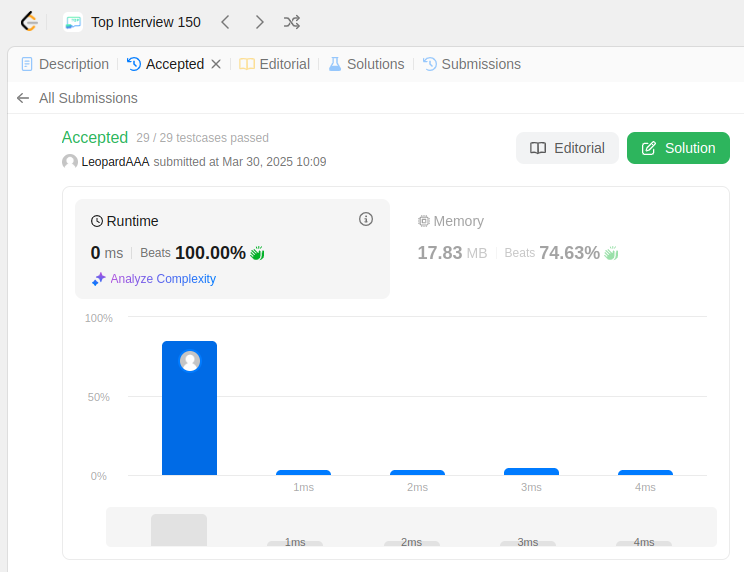You are given an array of variable pairs equations and an array of real numbers values, where equations[i] = [Ai, Bi] and values[i] represent the equation Ai / Bi = values[i]. Each Ai or Bi is a string that represents a single variable.
You are also given some queries, where queries[j] = [Cj, Dj] represents the jth query where you must find the answer for Cj / Dj = ?.
Return the answers to all queries. If a single answer cannot be determined, return -1.0.
Note: The input is always valid. You may assume that evaluating the queries will not result in division by zero and that there is no contradiction.
Note: The variables that do not occur in the list of equations are undefined, so the answer cannot be determined for them.
Example 1:
Input: equations = [["a","b"],["b","c"]], values = [2.0,3.0], queries = [["a","c"],["b","a"],["a","e"],["a","a"],["x","x"]] Output: [6.00000,0.50000,-1.00000,1.00000,-1.00000] Explanation: Given: a / b = 2.0, b / c = 3.0 queries are: a / c = ?, b / a = ?, a / e = ?, a / a = ?, x / x = ? return: [6.0, 0.5, -1.0, 1.0, -1.0 ] note: x is undefined => -1.0
Example 2:
Input: equations = [["a","b"],["b","c"],["bc","cd"]], values = [1.5,2.5,5.0], queries = [["a","c"],["c","b"],["bc","cd"],["cd","bc"]] Output: [3.75000,0.40000,5.00000,0.20000]
Example 3:
Input: equations = [["a","b"]], values = [0.5], queries = [["a","b"],["b","a"],["a","c"],["x","y"]] Output: [0.50000,2.00000,-1.00000,-1.00000]
Constraints:
1 <= equations.length <= 20equations[i].length == 21 <= Ai.length, Bi.length <= 5values.length == equations.length0.0 < values[i] <= 20.01 <= queries.length <= 20queries[i].length == 21 <= Cj.length, Dj.length <= 5Ai, Bi, Cj, Djconsist of lower case English letters and digits.
ChatGPT's Solution:
from collections import defaultdict, deque class Solution: def calcEquation(self, equations: List[List[str]], values: List[float], queries: List[List[str]]) -> List[float]: graph = defaultdict(dict) # Build the graph for (A, B), value in zip(equations, values): graph[A][B] = value graph[B][A] = 1 / value def bfs(start, end): if start not in graph or end not in graph: return -1.0 queue = deque([(start, 1.0)]) visited = set() while queue: node, product = queue.popleft() if node == end: return product visited.add(node) for neighbor, value in graph[node].items(): if neighbor not in visited: queue.append((neighbor, product * value)) return -1.0 # Process queries return [bfs(C, D) for C, D in queries]





 浙公网安备 33010602011771号
浙公网安备 33010602011771号